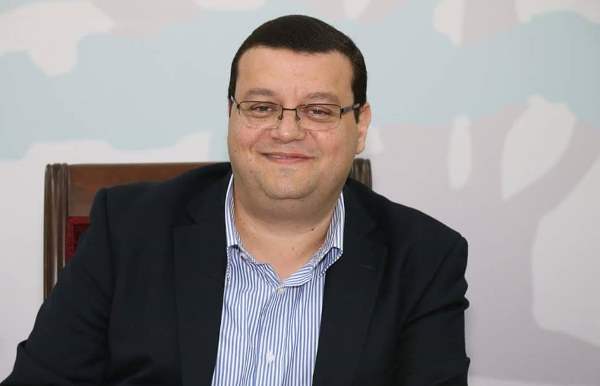Lebanon’s state of paralysis
Rami Rayess / The Arab Weekly
14 سبتمبر 2016

With the suspension of national dialogue, Lebanon seems to have entered a phase of unprecedented political paralysis.
The stalemate might be prolonged amid fears that the viability of the international umbrella preserving the fragile, yet continued, stability in the country is at stake.
The presidential vacuum is approaching 30 months and parliament is refraining from drafting legislation and has failed for the last 44 sessions to meet and elect a president. The suspension of the national dialogue poses a new challenge for Lebanese political life.
The national dialogue, including leaders of parliamentary blocs and influential Lebanese politicians, had always been faced with low expectations from the political community and in public opinion. However, it was the only medium in which there was direct political communication among Lebanese stakeholders.
The Lebanese cabinet, which is the only remaining constitutional body, will continue as a de facto institution even with the objections of several political parties and the resignation of others. The cabinet has been earmarked for some success with the economy or in politics and it provided cover needed for running state affairs. There was, and still is, consensus that the downfall of the cabinet would mean a leap into chaos and indefinite open political crisis that will be difficult to overcome.
Regional players particularly influential when it comes to Lebanon, namely Tehran and Riyadh, continue to be on contradictory terms on numerous issues — such as the Syrian conflict, the Yemeni war, the Bahrain situation and several other hotspots — that are far more complicated than the Lebanese crisis. Thus, Lebanese expectations that the arrival of regional help is imminent are futile and the more divisions among them get deeper, the more fragile the local Lebanese situation becomes. Replication of experiences of joining the Lebanese leaders abroad for dialogue to broker a political deal does not seem likely to recur under the current circumstances.

The gradual disintegration of the institutions, the serious threats of assassination of prominent Lebanese figures and the close-ended channels of dialogue all point towards the possibility of erupting chaos as a means to redraw the local political map. This would be likely based on a new distribution of power and balance that does not necessarily take into consideration the Taif Accord that installed a formula of equal representation between Muslims and Christians. This undermines the fragile stability of the country.
Despite all those factors, any real plans for powerful Lebanese parties to upset the stability in Lebanon seem doubtful. The regional turmoil seems to be complex enough, which makes Lebanon’s stability a priority, not for the objective itself but rather from fear of negative repercussions.
Some Lebanese parties seem to work from the idea that additional paralysis facilitates their plans of reaching the presidency but the reality is the opposite. Weakening the state will make it harder to elect a president and “organised” chaos can never be controlled.
It is true that the state in Lebanon has been historically the weakest player. Yet its collapse would pave the way for a complete downfall. Then resurrection will be mission impossible.
 عن أمل جنبلاط المتجدد: لبنان يستحق النضال
عن أمل جنبلاط المتجدد: لبنان يستحق النضال
 صحافيون أم عرّافون!
صحافيون أم عرّافون!
 ماذا يجري داخل أروقة بيت الكتائب المركزي؟
ماذا يجري داخل أروقة بيت الكتائب المركزي؟


 عن الخرائط التي تُرسم والإتفاقات التي تتساقط!
عن الخرائط التي تُرسم والإتفاقات التي تتساقط!
 “الإنحراف في الحياة”/ بقلم كمال جنبلاط
“الإنحراف في الحياة”/ بقلم كمال جنبلاط
 هاشتاغ #صار_الوقت يحل أولاً في حلقة جنبلاط
هاشتاغ #صار_الوقت يحل أولاً في حلقة جنبلاط
 طاولة نقاش عن أزمة الصحافة في جامعة AUST
طاولة نقاش عن أزمة الصحافة في جامعة AUST
 عبدالله: ليظهر لنا وزير مكافحة الفساد حرصه في صفقات البواخر والفيول
عبدالله: ليظهر لنا وزير مكافحة الفساد حرصه في صفقات البواخر والفيول
 عبدالله: غريب أمر وزارة مكافحة الفساد!
عبدالله: غريب أمر وزارة مكافحة الفساد!

 Comment to Uri Avnery: How Sad What Is Looming Ahead
Comment to Uri Avnery: How Sad What Is Looming Ahead
 “Not Enough!”
“Not Enough!”
 … لمن لم يقرأ يوسف البعيني/ بقلم وسام شيّا
… لمن لم يقرأ يوسف البعيني/ بقلم وسام شيّا
 كمال جنبلاط في مولده الأول بعد المائة: تعاليمه وأفكاره ما زالت الحلّ/بقلم عزيز المتني
كمال جنبلاط في مولده الأول بعد المائة: تعاليمه وأفكاره ما زالت الحلّ/بقلم عزيز المتني
 رئيس حزب/ وليس (… سابقاً)/ بقلم د. خليل احمد خليل
رئيس حزب/ وليس (… سابقاً)/ بقلم د. خليل احمد خليل
 التوازن السياسي في لبنان
التوازن السياسي في لبنان
 لبنان… مشاريع انقلابية مؤجلة
لبنان… مشاريع انقلابية مؤجلة
 جنبلاط وحَمَلة أختام الكاوتشوك
جنبلاط وحَمَلة أختام الكاوتشوك
 Le Liban est un symbole de tolérance
Le Liban est un symbole de tolérance
 Our Automated Future
Our Automated Future
 The True Origins of ISIS
The True Origins of ISIS
 Les Misérables vs. Macron
Les Misérables vs. Macron
 عذراً أيها المعلم/ بقلم مهج شعبان
عذراً أيها المعلم/ بقلم مهج شعبان
 رساله الى المعلم / بقلم ابو عاصم
رساله الى المعلم / بقلم ابو عاصم
 إلى روح القائد والمعلم كمال جنبلاط/ بقلم أنور الدبيسي
إلى روح القائد والمعلم كمال جنبلاط/ بقلم أنور الدبيسي
 أسرار وعناوين الصحف ليوم الجمعة 14 كانون الاول 2018
أسرار وعناوين الصحف ليوم الجمعة 14 كانون الاول 2018














